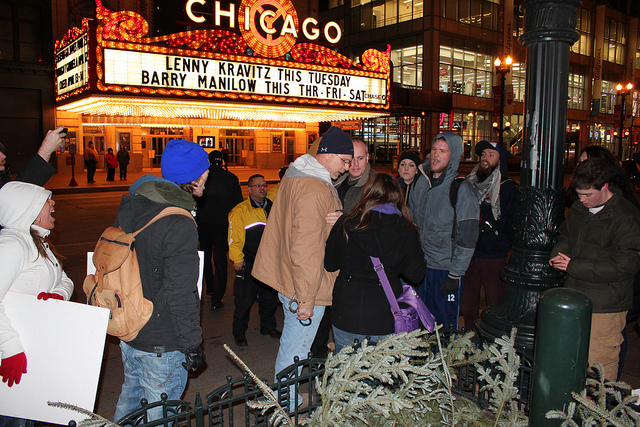Court Rules Against Enforcing Eavesdropping Law
By aaroncynic in News on May 9, 2012 2:00PM
A federal appeals court ruled yesterday that authorities cannot use the Illinois eavesdropping law to bar citizens from recording police doing their duties in public. In a lawsuit filed by the ACLU against Cook County State's Attorney Anita Alvarez, the 7th Circuit Court of Appeals found the law, which makes it a Class 1 felony to record a police officer, even in public, violates free speech and press guarantees. The ruling directs a lower court to issue an injunction barring enforcement of the law, according to the Sun Times.
In the 2 - 1 decision, Judge Diane Sykes wrote:
The Illinois eavesdropping statute restricts a medium of expression commonly used for the preservation and communication of information and ideas, thus triggering First Amendment scrutiny. Illinois has criminalized the nonconsensual recording of most any oral communication, including recordings of public officials doing the public’s business in public and regardless of whether the recording is open or surreptitious. Defending the broad sweep of this statute, the State’s Attorney relies on the government’s interest in protecting conversational privacy, but that interest is not implicated when police officers are performing their duties in public places and engaging in public communications audible to persons who witness the events.
The law has been challenged several times in Illinois and ruled unconstitutional before. In March, Judge Stanley J. Sacks, presiding over the case against Christopher Drew, who passed away on Monday, said the law criminalizes “wholly innocent conduct.” In August last year, a Cook County judge acquitted a woman charged with violating the law who recorded investigators she believed were attempting to dissuade her from filing sexual harassment charges against another officer.
Even though city officials have said they would not enforce the law for the upcoming protests during the NATO summit and Chicago Police Superintendent Garry McCarthy believes the law is a bad idea, the ruling is a victory for civil liberties advocates. The Trib reports Harvey Grossman, legal director for the ACLU in Illinois said that the
“widespread accessibility of new technologies make the recording and dissemination of pictures and sound inexpensive, efficient and easy to accomplish. In order to make the rights of free expression and petition effective, individuals and organizations must be able to freely gather and record information about the conduct of government and their agents.”
